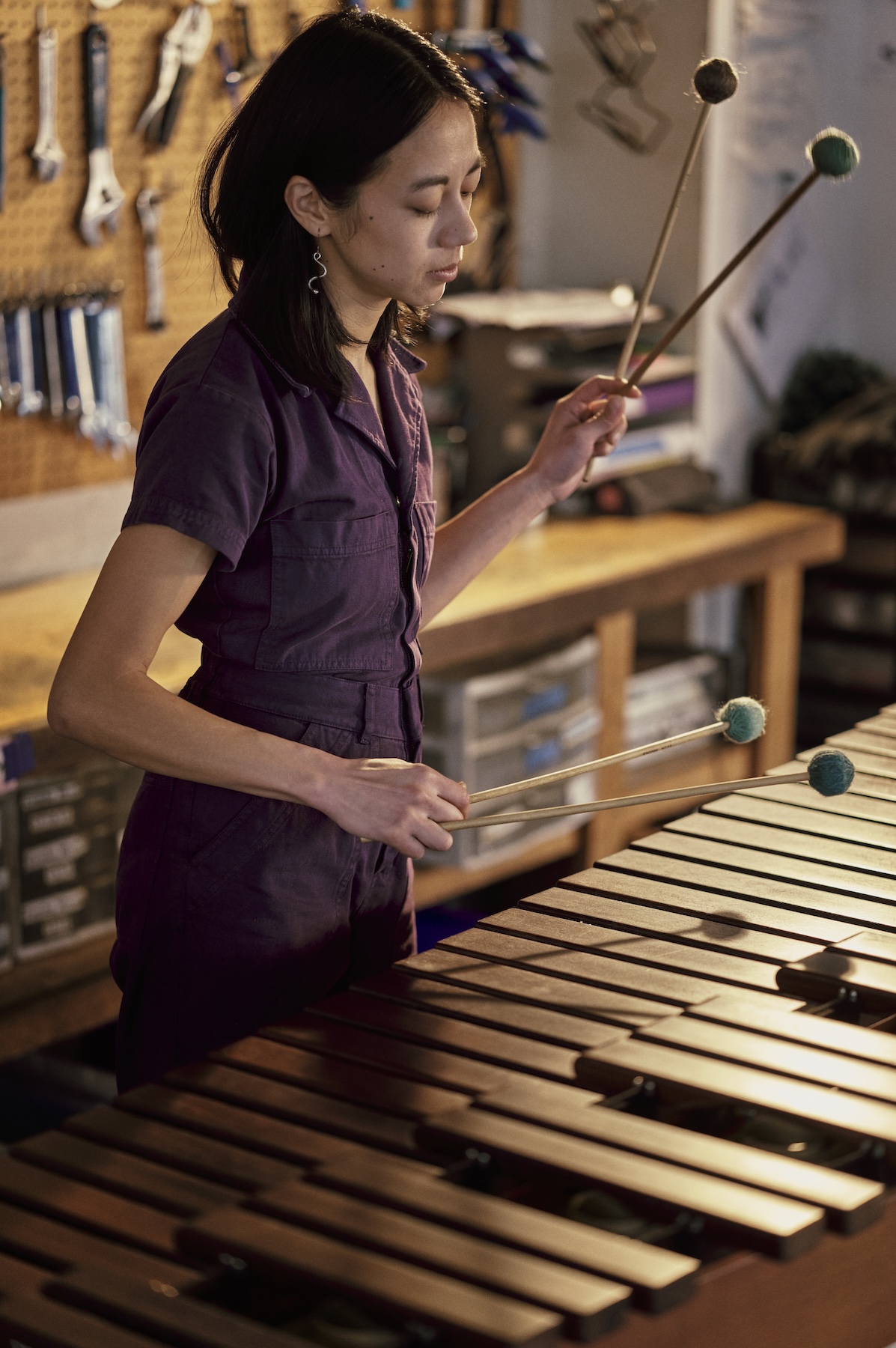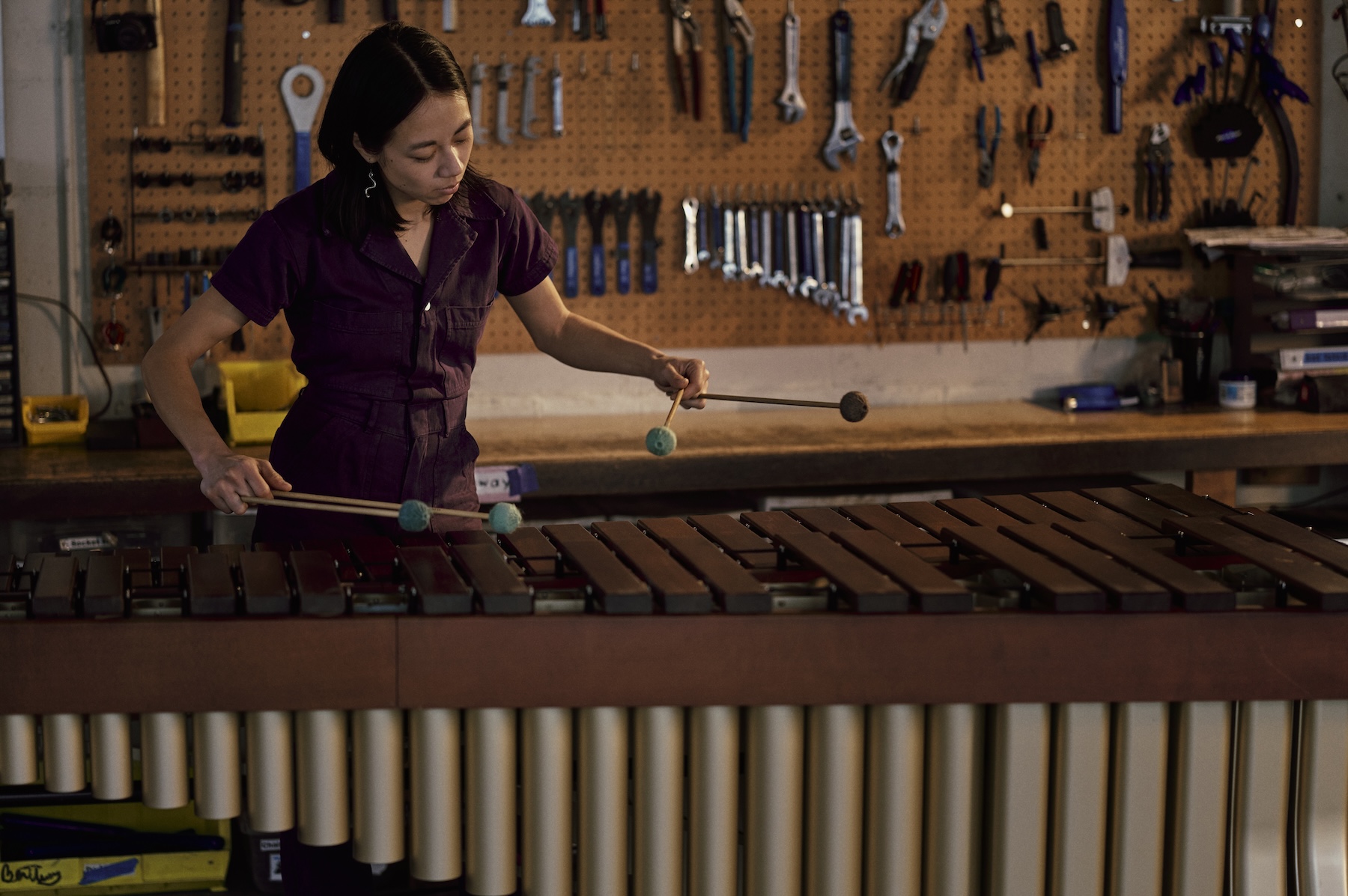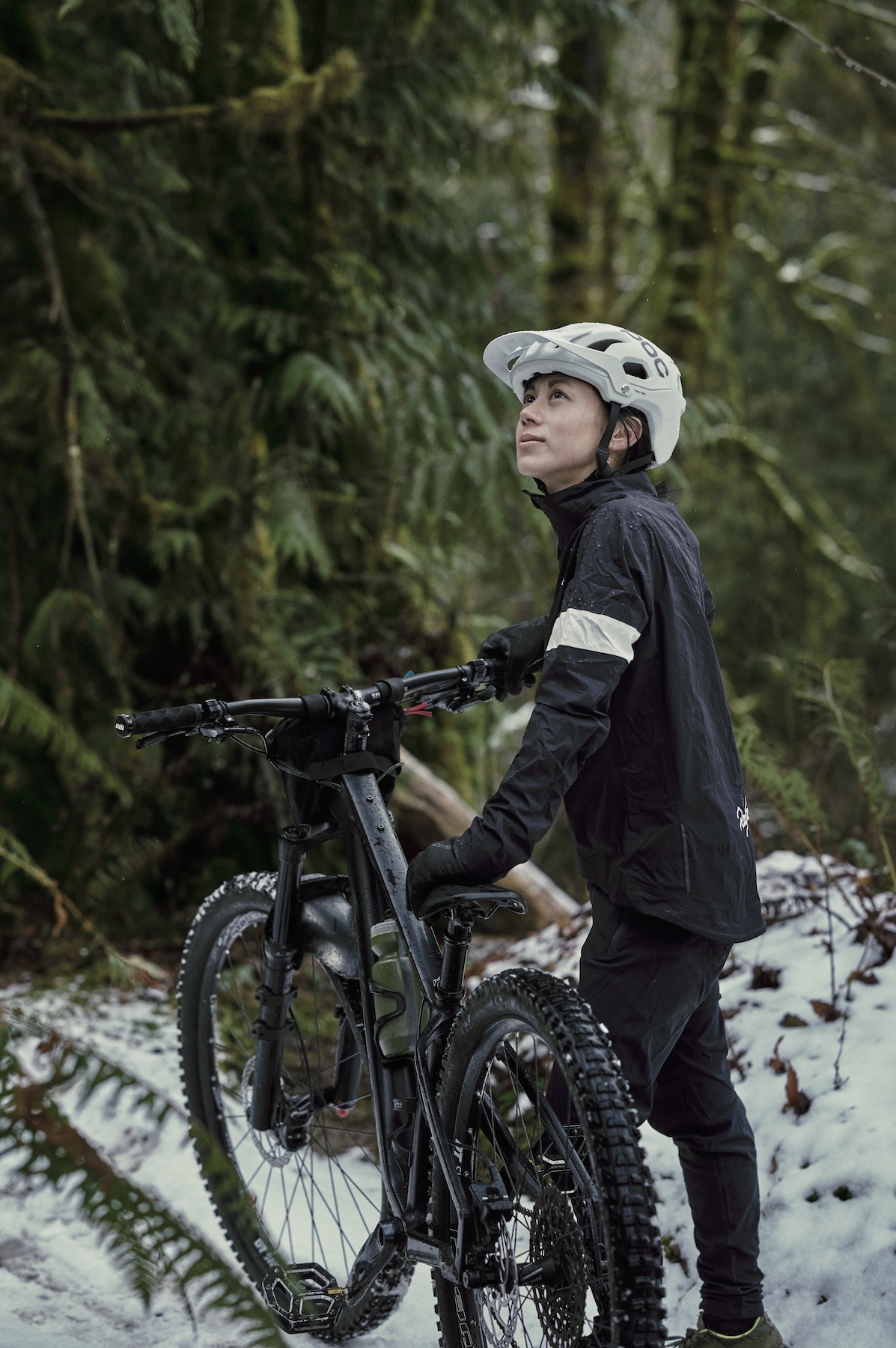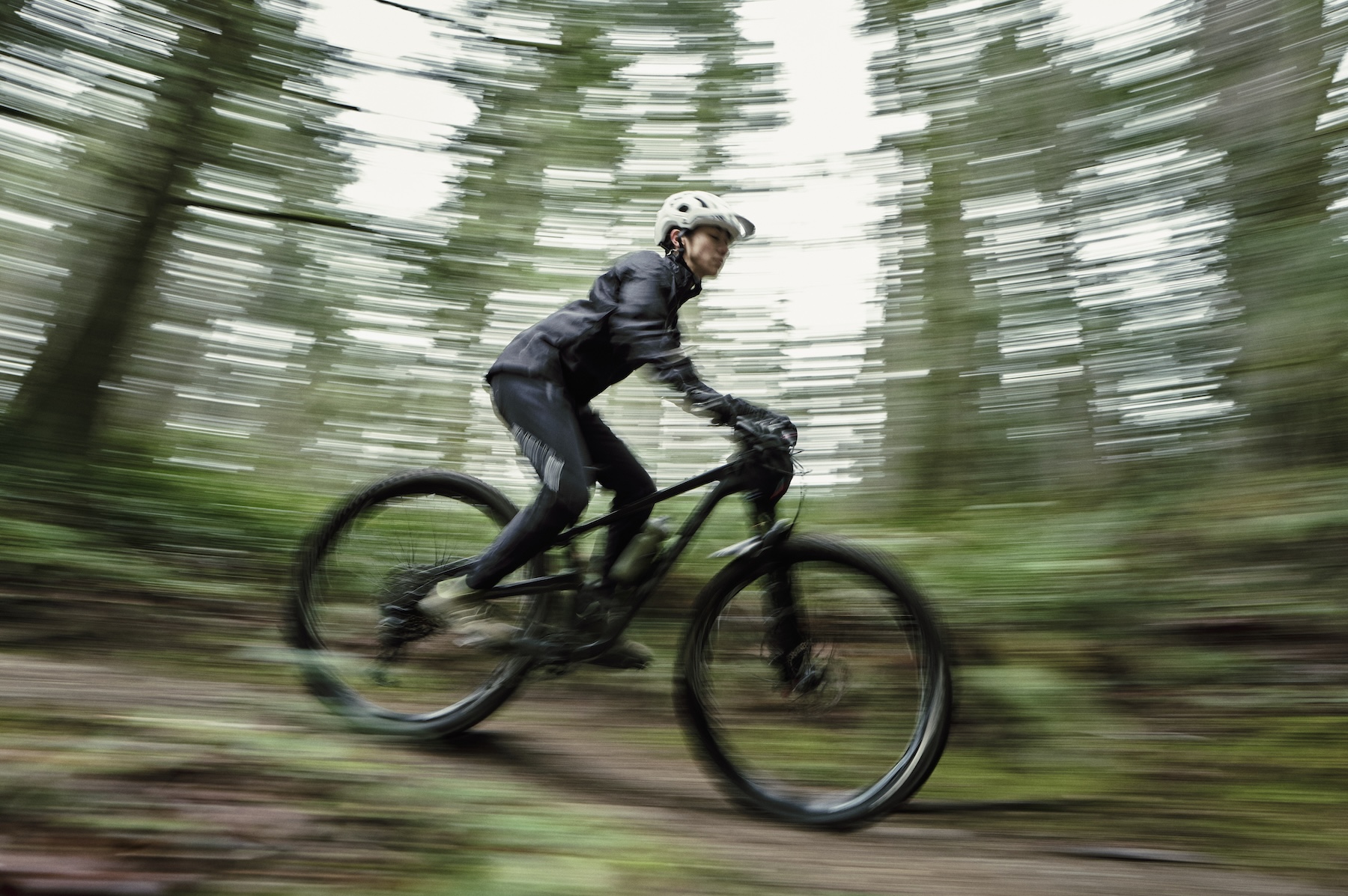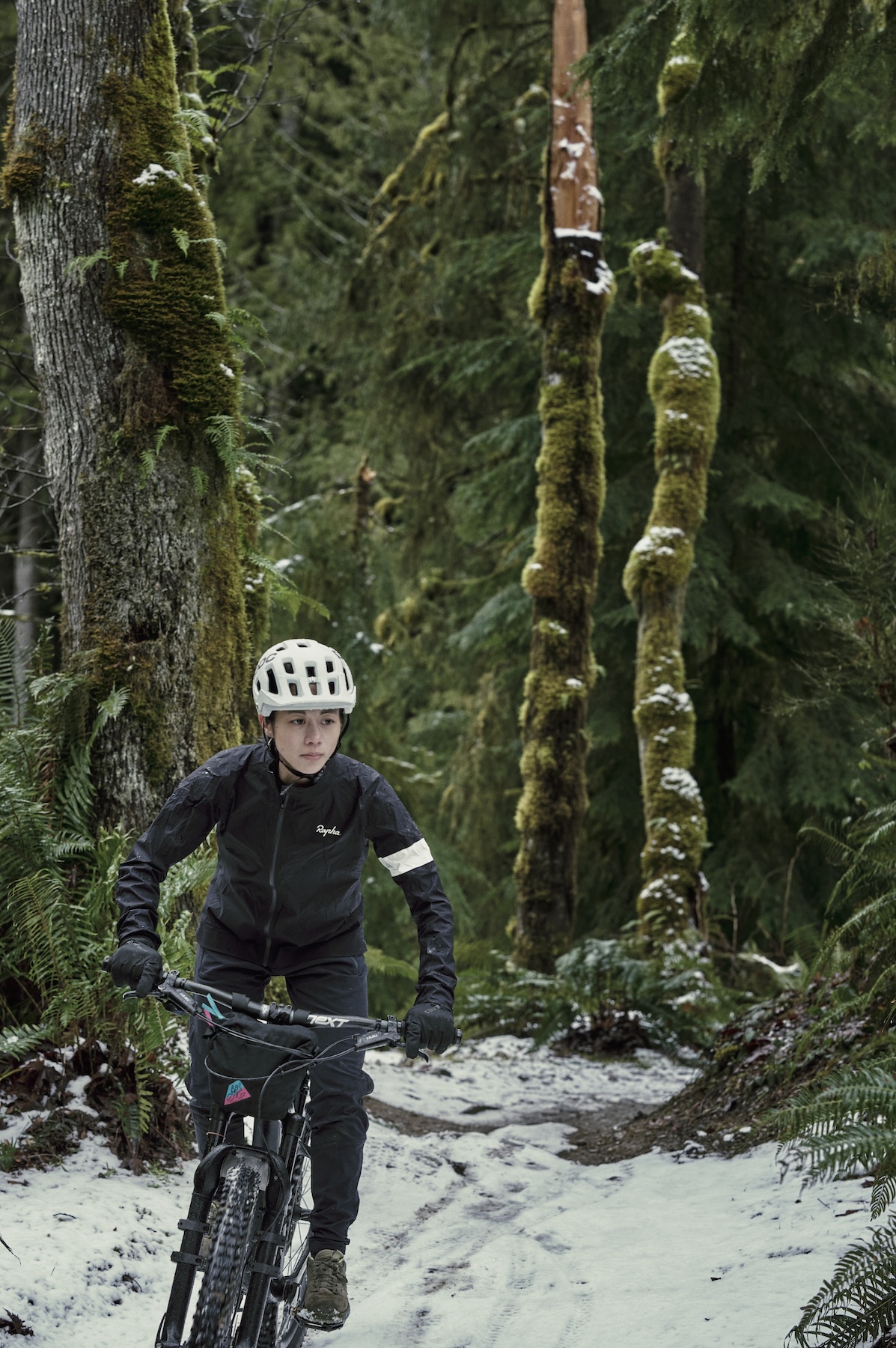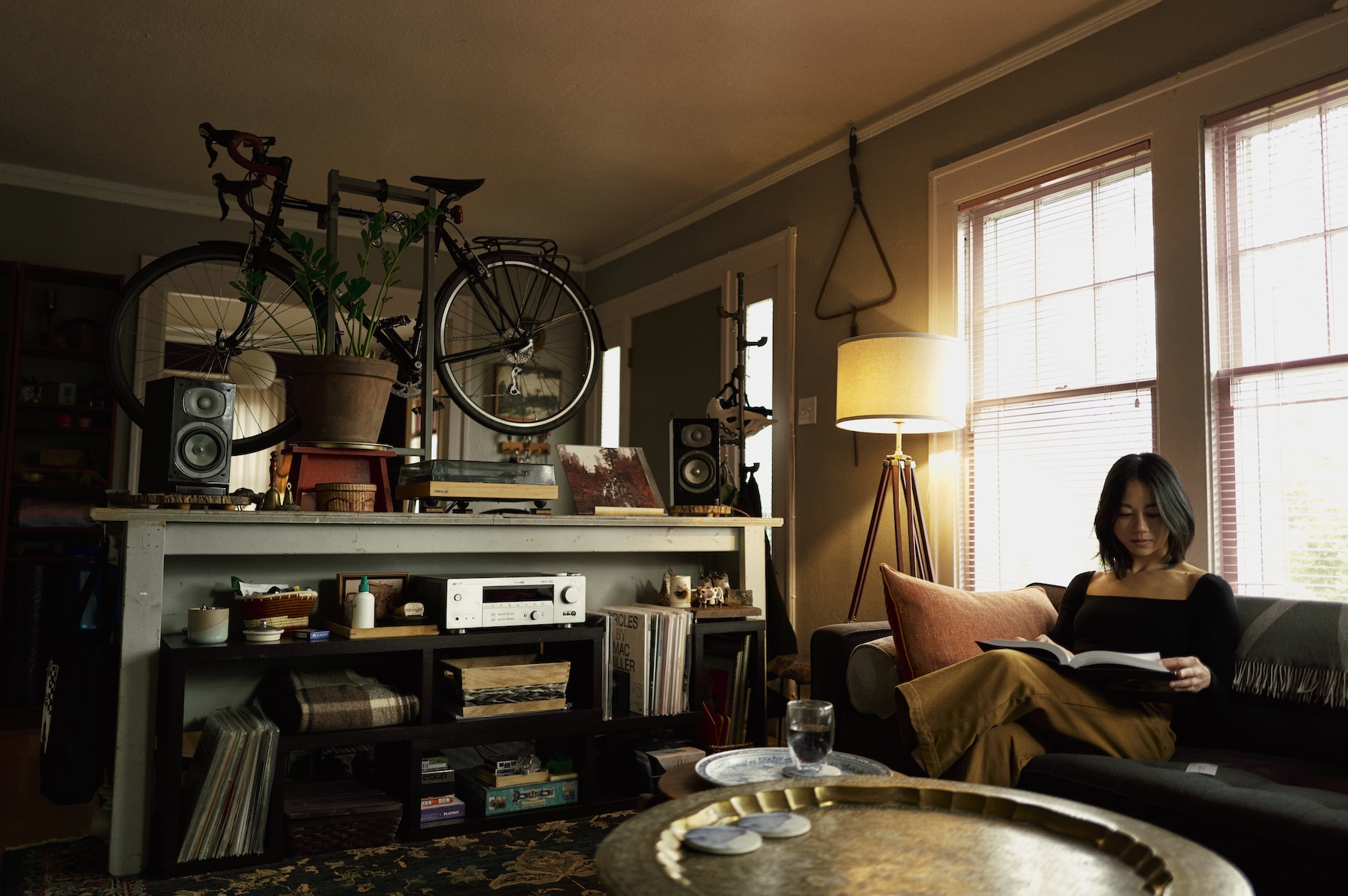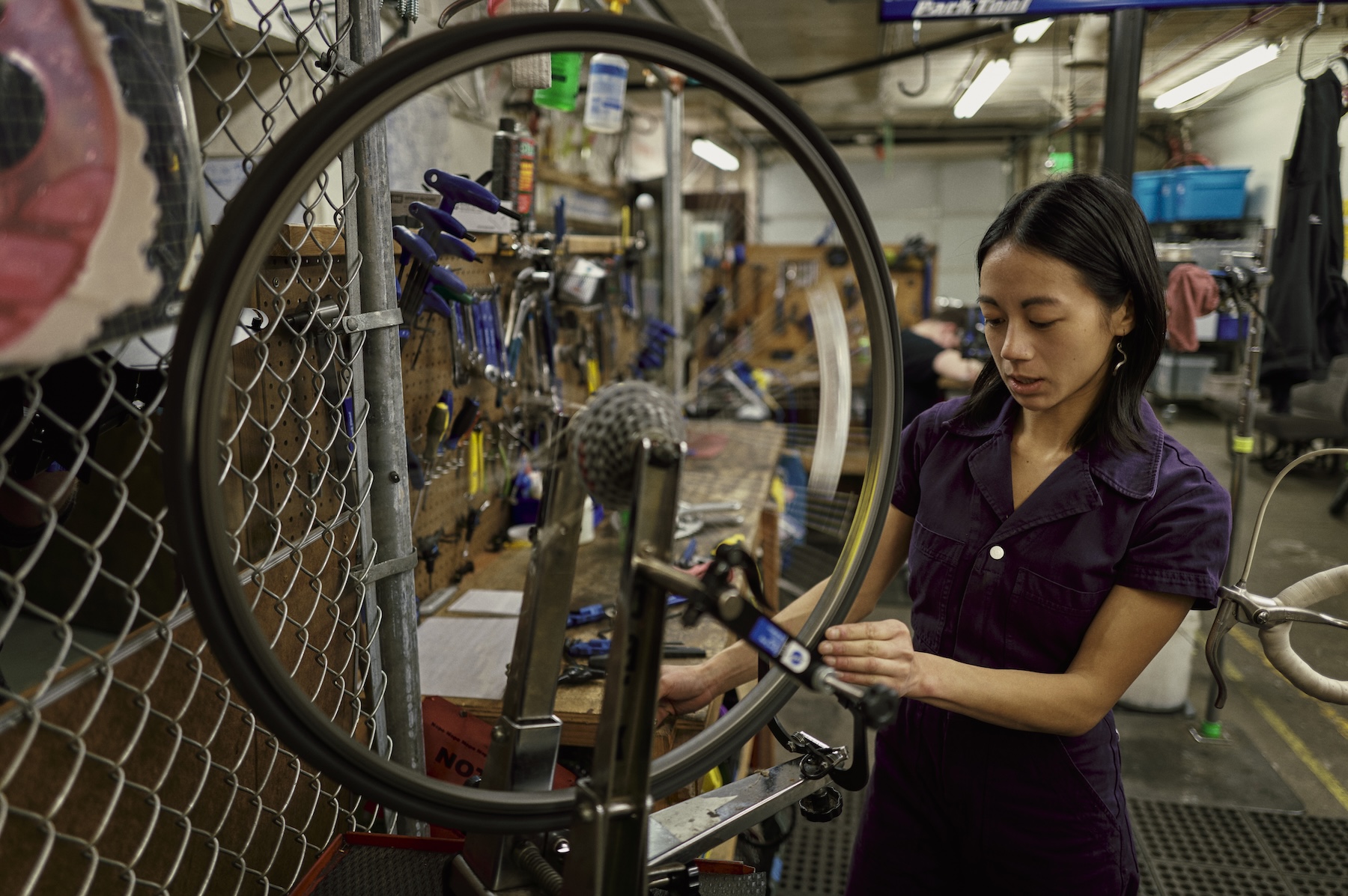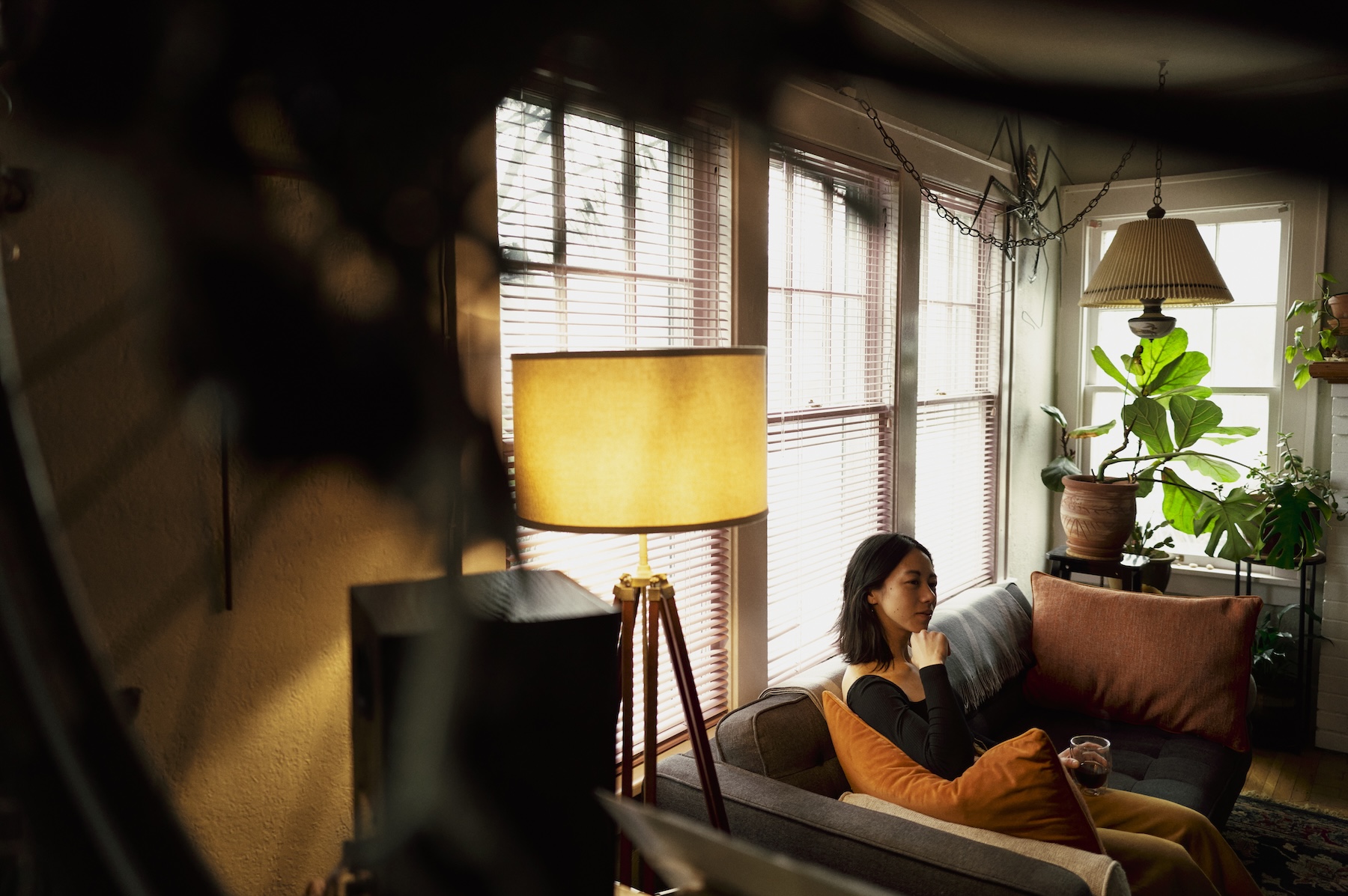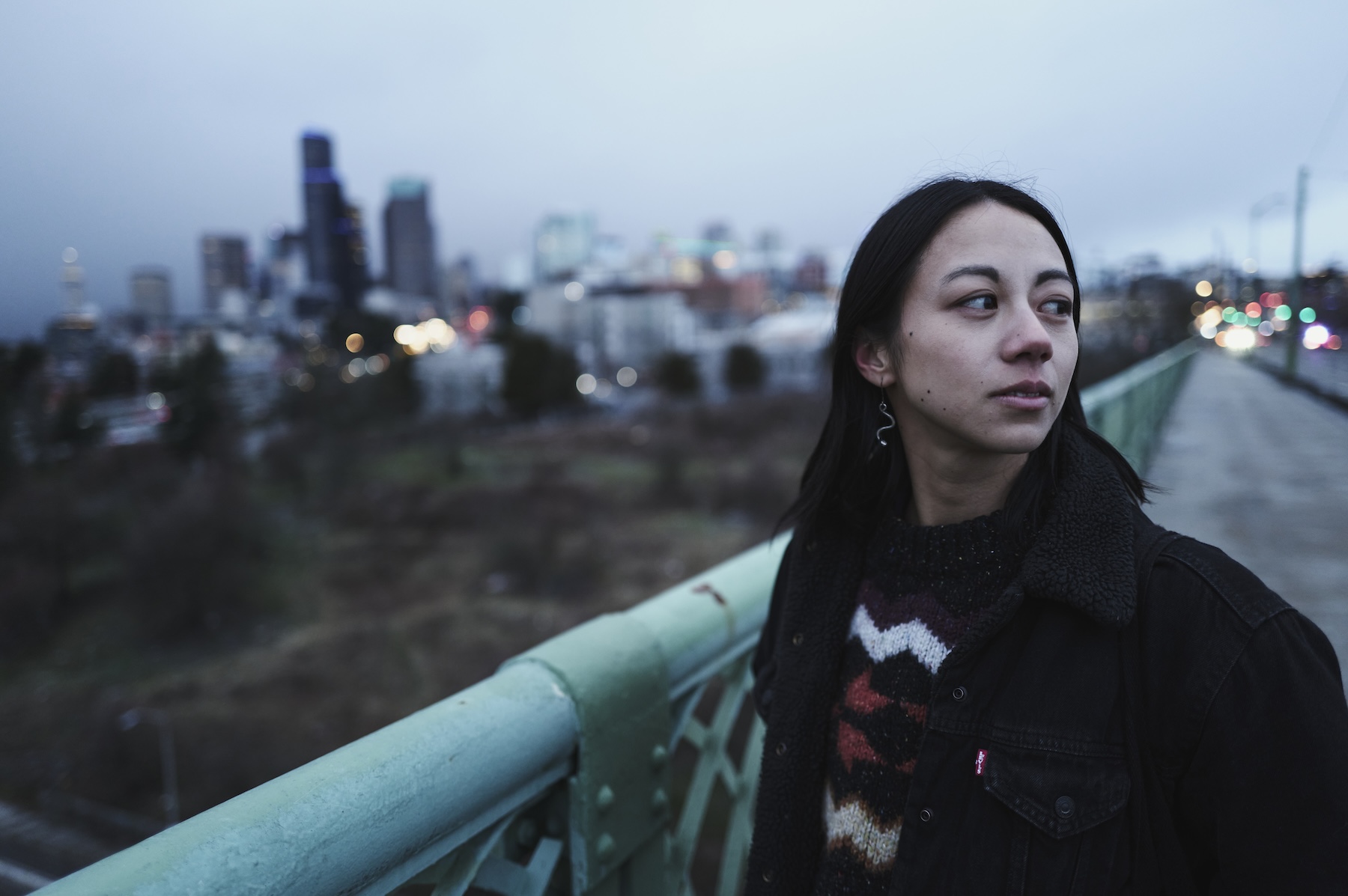Rebekah Ko
Kinetic Joy: Rebekah Ko
Kinetic Joy & Forward Motion
Rebekah Ko on music, cycling and their power in dispelling limiting beliefs
Written by Lisa Battles
Much of Seattle percussionist Rebekah Ko’s early career has been about figuring things out—embracing the process, managing expectations, doing the work and discovering her strengths.
Ko’s parents and brother immigrated from Taiwan before she was born in Torrance, California. The first part of her musical journey is similar to many others. Her mother enrolled her in piano lessons, something she always wanted herself. Respectful of her mother’s wishes, Ko did her part with piano for six years but was not passionate about the discipline beyond the performance aspects, she says.
Even so, when it was time to choose high-school extracurriculars, the band felt like the natural fit over sports options.
“I was an indoor kid, wasn’t involved in any sports, and was never really presented with outdoor activities as an option to be pursued,” Ko says. “I didn’t think of myself as an athlete.”
She started with the flute and in eighth grade, she was nudged toward percussion.
Finding New Rhythms
In short, Ko’s band director needed a percussionist who could read music, and she is very frank that she was not the best flutist. Initially reluctant, she soon discovered a deep connection to the kinetic nature of percussion. It was a revelation.
“I fell in love with it. …Something that was really lacking in my life was this kinetic energy connection, this physical connection with doing something and the joy of movement. That’s really what drew me in,” Ko says.
“That was the first time I had an organized activity, and I found a sense of community for the first time through marching band and indoor drumline.”
Despite these benefits, Ko didn’t initially plan to pursue music in college, much less as a career. She wasn’t clear on what that picture would look like for herself.
She halfheartedly applied to business schools while auditioning for something she knew she did want—a spot with the independent percussion ensemble, Pulse. While she wasn’t accepted because the organization did not take high schoolers with programs available to them, she gained a mentor with the group, who encouraged her to apply to music schools. Despite having missed critical deadlines with some, he encouraged her to find others while helping her upskill for auditions.
Around the same time, she earned a spot with the Santa Clara Vanguard Drum & Bugle Corps, where she connected with students from the University of North Texas.
Ultimately, UNT became her school of choice among the four to which she applied. Not only was she accepted to all of them, but she was offered varying scholarships, as well. The same could not be said of her business school applications.
Taking it as a sign, she decided to follow the path music was laying out for her.
Keeping an Open Mind
Ko says her first two years at UNT were rigorous, tackling a highly structured program that laid out four years of lessons and expectations for progress every week.
“I was trying to keep up with this curriculum that assumed you were starting from a certain place because you were there. …I was in a class of almost 40, and my expectation for myself was, ‘Don’t be the worst. Be the second worst.’ …That just allowed for a lot of freedom not to worry about comparing myself to others, which is really easy to do at a school with that many people in a department. I had the freedom to just find my own standards and decide what I wanted out of it and where I wanted to go with the time I was spending,” Ko says.
By her final two years, she had not only improved but developed a competitive edge. And yet she still wasn’t convinced she wanted to pursue an advanced degree. Instead, she leaned into her love for marimba, an instrument that became central to her musical identity.
Entering a New Cycle
After graduating in 2016, Ko’s path took an unexpected turn toward bicycles. A relationship with a bike shop owner introduced her to cycling, and she began helping out around the store. He built her a customized bike, and riding it “was like flying,” she says.
Much like the first time she experienced the physicality of percussion, this was an empowering experience, further breaking down misconceptions she had about her abilities.
While the relationship changed, they remained friends. When Ko moved to Seattle, he backed her up as a reference to land a job as a bike mechanic to make ends meet. Meanwhile, she networked in the local music circles, picking up work with community orchestras and chamber ensembles and playing private events.
Her daily cycling for transportation took the back seat when she bought a car. That temporary bike shop gig turned into a seven-year career in which she became manager.
Tackling New Challenges
In 2020, the pandemic brought a sudden halt to performances while fueling a surge in outdoor recreation. Needless to say, Ko stayed busy.
She also bought herself a mountain bike, a decision that deepened her connection to cycling and herself. Much like her marimba playing, the sport became a form of meditation, requiring her to enter a flow state where hesitation could lead to mistakes.
The process of learning to trust herself on the trails reminded her of the journey she had taken with music in college—overcoming fear, building confidence and pushing through self-doubt.
“If you tense up, things do not go well,” she says.
Mountain biking reinforced an important lesson: moving forward without second-guessing herself. It was a space free of expectations, where she could simply be.
“I think that was something that mountain biking really offered—just something new where I got to be without expectations for myself again and find that freedom,” Ko says. “Remember how that felt, hold that close this time, and apply that to everything else in my life. I think that’s the gift mountain biking has given me over the past four years that I want to move forward with.”
Sharing Her Gifts
Eventually, Rebekah left the bike shop to pursue work in public service. She now works as the director of community resources for Bike Works, a nonprofit focused on building resilient communities through sustainable transportation.
The organization offers educational programming about cycling for youth and adults while working to increase accessibility to underserved communities through repair classes, bike donations and a refurbishing program. Last year, they processed over 5,000 bikes—and that’s not even a record year.
At Bike Works, Ko touches almost every aspect of its mission, including educational programming, determining the viability of donated bikes and assisting with the BikeMobile, a free bicycle repair service. She says her involvement with the organization allows her to combine her passion for cycling with the greater purpose of empowering others with the freedom biking has given her.
Returning to Music with Renewed Intention
As for music, Ko now chooses projects with more intention and excitement. She and three other percussionists are launching a percussion chamber ensemble nonprofit. The idea grew from a longtime collaborator’s school, Seattle Percussion Works, which is dedicated to youth and adult percussion education. That space will serve as the foundation for their ensemble collective, providing access to instruments and practice space.
She is also reviving a trio she formed in 2018 with one of these same percussionists and a keyboardist/guitarist. After pausing in 2024, they are returning under a new name, aptly “AGAIN.” She says this time, they’ve agreed to clearer expectations to focus on experimentation and creativity without strict deadlines.
Another of her projects features an electric guitarist, a drummer, a mini organ player, and herself on marimba. Ko says it was the first group where she got to choose what she wanted to play, and she loves the challenge of adapting marimba to music that sometimes doesn’t strike her as the best suited for it.
“My mechanic, problem-solving brain gets tickled by that experience. It’s fulfilling in that I’ve gone through this process of feeling like I’ve made possible what seemed technically impossible at the beginning. That feels like I’ve conquered something,” Ko says.
Grateful for Perspective & Growth
Ko says the mountain views in Seattle help her keep a healthy perspective about the immediacy of life and her place in the world.
“The clouds will break, and there’s a straight shot of Mount Rainier,” she says. “It’s humbling and grounding, a reminder of how much bigger the world is outside of myself and the city.”
With those perspectives, she’s shifted how she approaches her next steps. While she long stood by embracing the process of elimination, exploring to rule out what she doesn’t want, now she is actively focused on those things she does.
In the same vein, she no longer views music as something that must be a singular pursuit requiring her to choose between it being a career or a hobby. The connection between music and cycling has shown her that both are avenues for growth, spaces where she learns about herself.
“Something I’ve been deconstructing the past couple of years is a mentality of music having to be a career versus a passion or hobby,” Ko says. “It’s a way of living and way of life, my lens of viewing the world and part of my everyday. Both music and cycling are disciplines that have added value to who I am and how I see things.”
The Three440 Artist Story Series takes you beyond the spotlight and into the real lives of Yamaha Performing Artists. Each story is a window into the creative process, pivotal moments, setbacks and victories that define an artist’s path.
STAY IN TOUCH! SIGN UP FOR THREE440 STORIES
Three440™ is a trademark of Yamaha Corporation of America.









